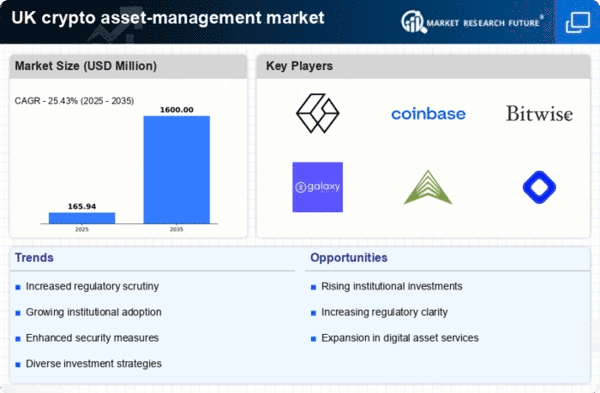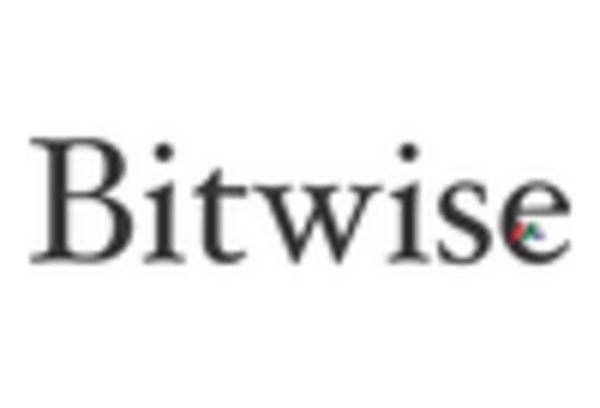Emerging Investment Products
The crypto asset-management market is evolving with the introduction of innovative investment products designed to cater to diverse investor preferences. Financial institutions in the UK are launching crypto exchange-traded funds (ETFs) and managed portfolios, which provide investors with exposure to digital assets without the complexities of direct ownership. This diversification of investment options is anticipated to attract both institutional and retail investors, potentially increasing market capitalisation. As of November 2025, the market for crypto ETFs in the UK is projected to reach £1 billion, indicating a robust appetite for structured investment vehicles. Such developments are likely to enhance the credibility and acceptance of cryptocurrencies within traditional financial frameworks.
Increased Retail Participation
The crypto asset-management market in the UK is witnessing a surge in retail participation, driven by growing awareness and accessibility of digital assets. As platforms become more user-friendly, individuals are increasingly investing in cryptocurrencies. Recent data indicates that approximately 10% of UK adults own some form of cryptocurrency, reflecting a significant rise in interest. This trend is likely to continue as educational resources and investment tools become more prevalent, enabling a broader demographic to engage with the market. The influx of retail investors is expected to enhance liquidity and drive demand for asset-management services tailored to individual needs, thereby shaping the future landscape of the crypto asset-management market.
Regulatory Clarity and Compliance
Regulatory clarity is emerging as a crucial driver for the crypto asset-management market in the UK. The Financial Conduct Authority (FCA) has been actively working to establish a framework that promotes innovation while ensuring consumer protection. As regulations become more defined, asset managers are better equipped to navigate compliance requirements, which may encourage institutional investment. The establishment of clear guidelines is likely to foster a more stable environment for crypto assets, potentially increasing market confidence. As of November 2025, it is estimated that compliance costs for crypto asset-management firms have decreased by 20% due to streamlined regulations, allowing firms to allocate resources more effectively and focus on growth.
Integration with Traditional Finance
The crypto asset-management market is experiencing a notable integration with traditional financial systems, which is reshaping investment strategies. Financial institutions are beginning to offer crypto-related services, such as custodial solutions and advisory services, thereby bridging the gap between conventional finance and digital assets. This trend is likely to facilitate greater acceptance of cryptocurrencies among institutional investors, who may have previously been hesitant. As of November 2025, it is projected that the market share of crypto-related services within traditional finance could reach 15%, indicating a significant shift in investment paradigms. This integration is expected to enhance the legitimacy of the crypto asset-management market, attracting a wider range of investors.
Technological Advancements in Security
Security remains a paramount concern within the crypto asset-management market, prompting ongoing technological advancements. The implementation of robust security measures, such as multi-signature wallets and cold storage solutions, is becoming increasingly common among asset managers. These innovations aim to mitigate risks associated with hacking and fraud, which have historically plagued the sector. As of November 2025, it is estimated that over 70% of crypto asset-management firms in the UK have adopted advanced security protocols, reflecting a commitment to safeguarding client assets. This focus on security not only enhances consumer confidence but also positions the market for sustainable growth, as trust is a critical factor in attracting new investors.
















